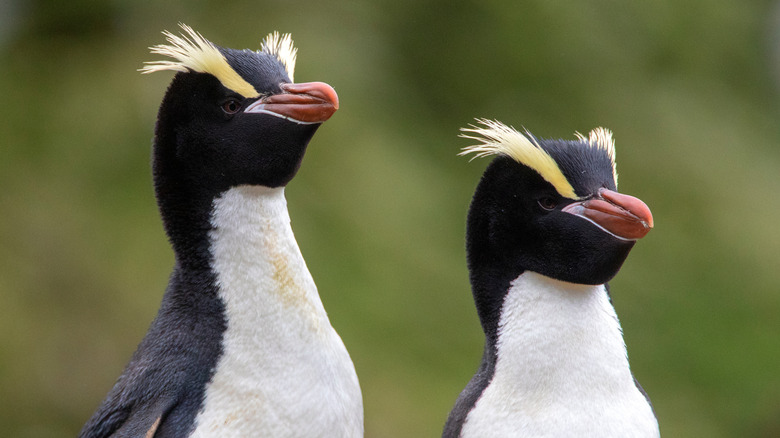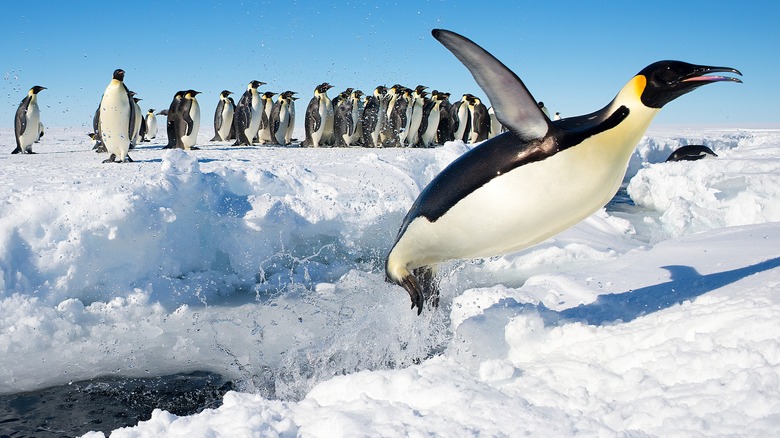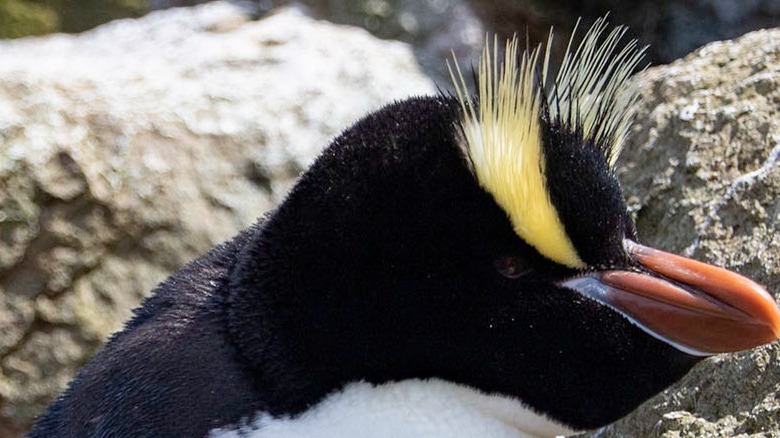The Story Behind This Strange Behavior Of New Zealand Penguins
Penguins were first "discovered" by Westerners in 1497, according to Penguins-World, when Vasco de Gama's crew spotted them off the coast of what is now South Africa. "There are birds as big as ducks, but they cannot fly and bray like donkeys," a crewman wrote.
In the 500 or so years since researchers have been studying them, we've learned a lot about our fine-feathered, flightless friends. In particular, their mating and parenting rituals, during which the male plays a role in nurturing the young (almost unheard of elsewhere in the animal kingdom), are a source of fascination.
Recently, scientists were able to suss out and study a weird behavior in a particular species of the birds. The erect-crested penguin (pictured above), which inhabits icy outcroppings in the Southern Ocean near New Zealand, has an extremely unusual egg-laying ritual that is unique among birds, and which many may consider quite harsh.
Birds Of A Feather...
Penguins are birds, of course, and like almost all other species of birds, penguins lay eggs. However, the similarities between penguin egg-related behavior and that of just about 99 percent of the rest of that of the bird kingdom begin and end there. For example, emperor and king penguins lay one egg per breeding season, while other species lay two, according to Penguins of the World. By comparison, many other birds lay one egg per day, if not more, according to All About Birds.
Laying the egg is just the beginning for the penguin. It also must be kept warm against the impossibly cold temperatures of its habitat, a job held by both the male and the female (also somewhat unique in the bird pantheon). For emperor penguins specifically, the male will keep the egg warm while the female hunts.
But erect-crested penguins have a unique ritual. As previously mentioned, they're one of the two species that lay two eggs. And the birds will uniformly reject the first egg, for reasons that science is just beginning to figure out.
Why Erect-Crested Penguins Reject Their First Egg
So we know that erect-crested penguins lay two eggs and reject the first. But why? From a zoological standpoint, that's absolutely foolhardy: Laying an egg and then caring for it until it hatches requires a tremendous amount of energy, which is in short supply in the birds' harsh environment, according to Live Science. So why exert all that energy for nothing?
A team of researchers from New Zealand's University of Otago took a closer look and published their results in PLOS One. To make a long story short, ignoring the first one means that the second one has a higher chance of survival, since the birds couldn't possibly feed two chicks. Further still, the secondary eggs are generally larger than the primary ones, possibly pointing towards a healthier chick.
Meanwhile, though this particular species of penguin isn't threatened directly by human activity, it is suffering from the effects of climate change.


